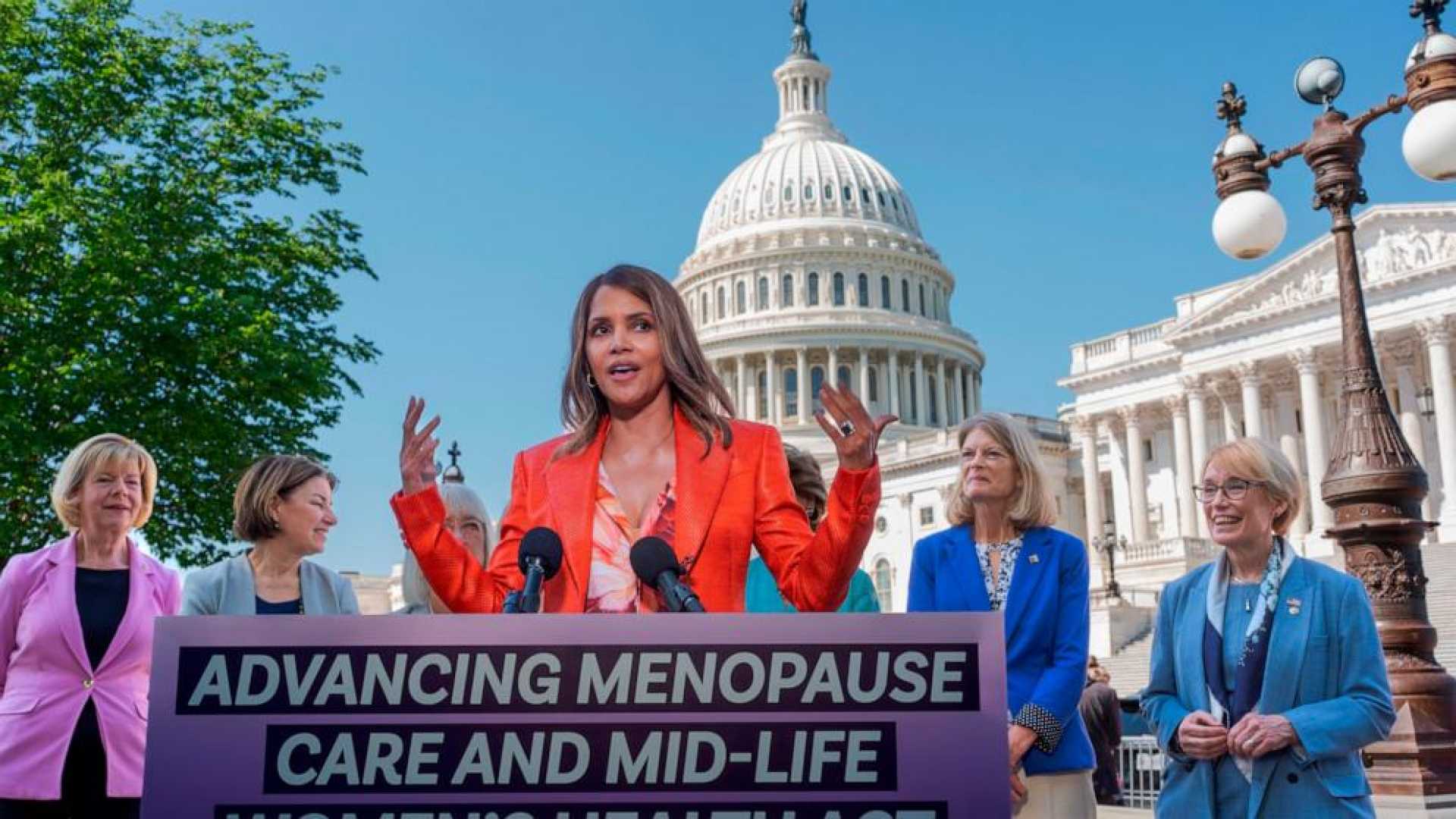Health
Actress Halle Berry Launches Respin Health to Address Menopause Stigma

LOS ANGELES, Calif. — Halle Berry is reshaping the dialogue surrounding menopause through her new platform, Respin Health, aimed at women experiencing perimenopause, menopause, and post-menopause. During the pandemic, the Oscar-winning actress realized she was entering perimenopause, leading her to create this innovative resource backed by scientists and medical professionals to support the estimated 75 million women in the U.S. navigating these changes.
“It’s a new spin on what menopause means to women’s health, what it means to a woman, and what this time of life can be about,” Berry told WWD. “Menopause definitely needs a re-spin.”
Berry, now 58, launched Respin Health to address the knowledge gaps and stigma surrounding menopause. She noted that as many as 6,000 women enter menopause daily, yet many face misdiagnoses. A 2023 Harris poll for Kindra revealed that one in three women aged 45 to 60 received incorrect diagnoses regarding menopause, with 60 percent finding their doctors’ advice “unhelpful.”
Berry herself was misdiagnosed when seeking treatment for vaginal dryness—a common symptom of menopause—at age 54. “I thought I was going to miss it, and if I could skip it, that would be the best for myself, because I don’t want to be seen as old,” she recounted. “But I was as afraid as anybody else. I thought I could be a person that could skip it.”
To make Respin Health a reality, Berry partnered with Ally Tam Tumasova, CEO, along with a leadership team that includes AI specialist Manasa Murthy and community builder Natalie Bruss. This collaborative effort aims to fill a significant void in menopause resources.
The global menopause market is projected to exceed $28 billion by 2028, yet many brands struggle to communicate effectively with consumers. According to the Institute of Practitioners of Advertising, only 7 percent of women aged 35 to 60 consider brands to be addressing menopause well, with nearly half stating the messaging does not reflect their experiences.
Respin Health intends to provide a comprehensive approach to menopause management, offering alternatives to Hormone Replacement Therapy through access to personalized experts and support groups for women facing similar challenges. Their plans are tailored based on 150 health data points to accurately assess individual menopause experiences. The service is available via a monthly subscription.
<p“We connect you with a coach to help you formulate a plan and stay accountable,” Berry explained. “It’s similar to what made Weight Watchers successful, with a community to lean on.”
The platform’s invite-only Beta program, launched over the summer, reported significant improvements among members. In an eight-week evaluation, 90 percent experienced “directional improvement in symptoms,” and 64 percent noted “clinically significant improvement.”
AI technology is set to play a key role in Respin Health, providing women with continuous, science-backed support. “It’s always-on help that answers questions with state-of-the-art, medically-proven information,” Berry said.
According to the National Institute on Aging, more than 1 million women in the U.S. enter menopause annually, yet the medical community lacks sufficient understanding and research regarding these conditions. Berry has been a leading advocate for menopause awareness, actively supporting efforts to advance federal funding and research through the proposed Advancing Menopause Care and Mid-Life Women’s Health Act.












